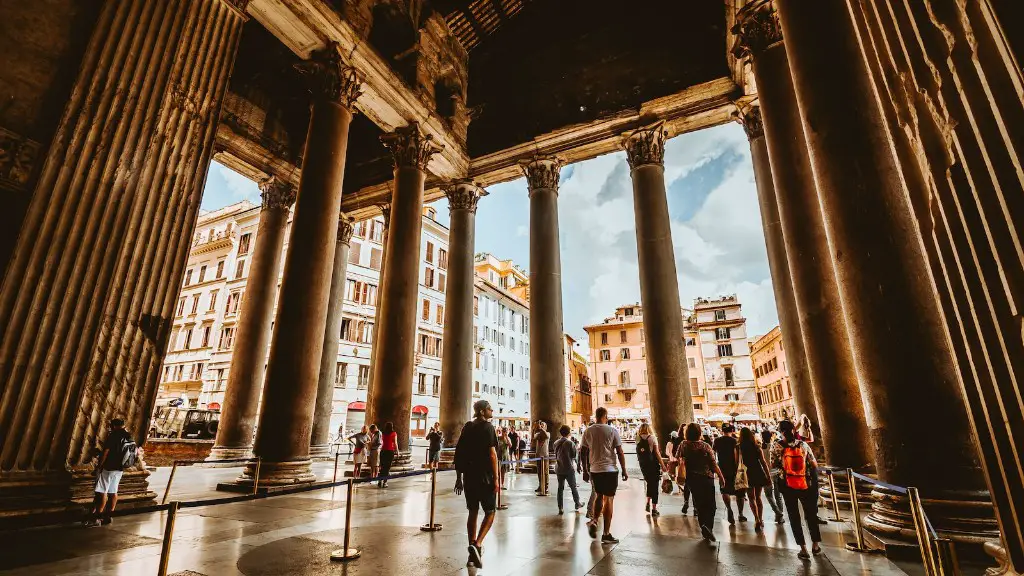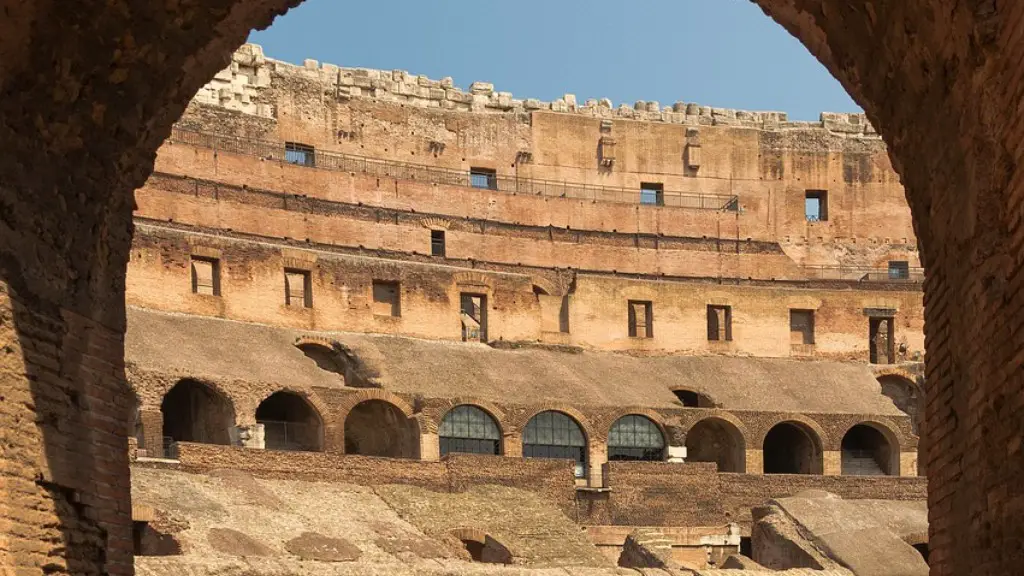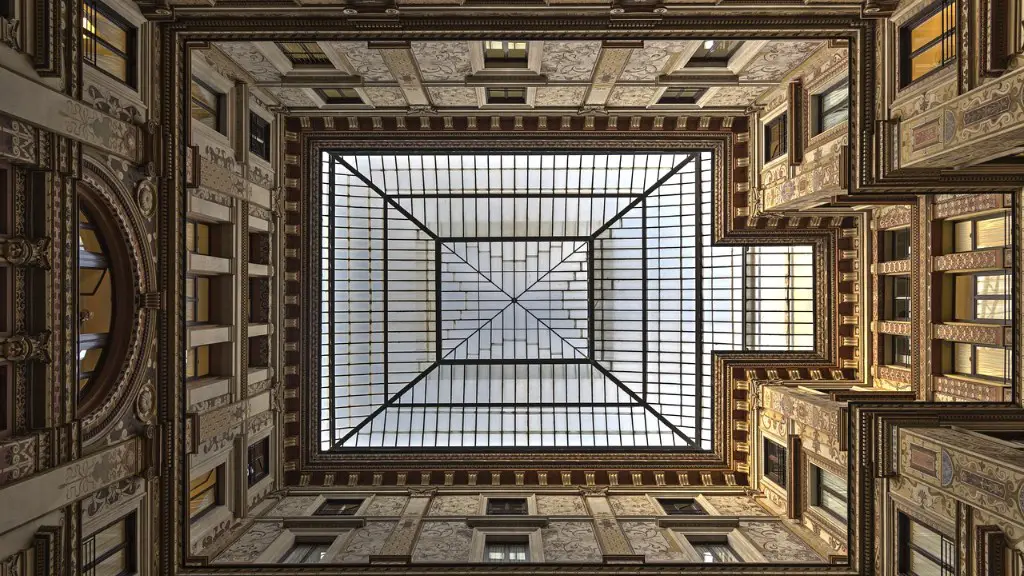Religion
Ancient Rome was a deeply religious culture, even before the introduction of Christianity. Since Ancient Greek times, the Olympics were a sacred part of the religious calendar in honour of the shared gods of the Greeks and Romans. Much like other ancient religions, the Romans were dedicated to the values of the gods and believed that participation in the Olympics strengthened their connection with them. That connection with the gods was incredibly important for the ancient Romans in providing a sense of security and predictability in their lives. By participating in the Olympics, the Romans were able to pay homage to the gods and thus connect to their strength and stability.
In addition, the Olympics provided a shared identity for the Romans, uniting them under a common religion. As the Roman Empire grew and expanded, laws and customs from different areas of the Empire began to blend. Through the Olympics, the Romans could maintain a common cultural identity and religious unity. Through the practices of the Olympics and their spiritual significance, the Romans were able to connect to their shared history, allowing them to remain closely connected to their past.
Culture
Ancient Rome was a culture that valued competition, a belief that was shared by both the Greeks and the Romans. The Olympics were a symbol of this shared competition and were highly valued by the Romans. The athletes who participated in the Olympics were seen as representatives of the individuals of their communities and helped to unify the Roman people. The athletes symbolized the hard work, dedication and ambition of their communities while also providing a way for people to come together from across the Empire in celebration.
The Olympics also had an important role to play in providing a platform for Roman entertainment. The competitions provided for enthusiastic audiences with the opportunity to be witness to exceptional athletic achievement. For those participating in the Olympics, it provided an opportunity to see the world beyond the borders of their own homes. Alongside this, the Romans saw the Olympics as a way to share their culture and traditions with the wider world. Through their participation in the Olympics, the Romans were able to display their poets, art and literature on a global stage.
Politics
The Olympic Games were the perfect opportunity for the Romans to prove their political and military strength to the rest of the world. Participation in the event was seen as a sign of their proficiency and superiority, creating an international platform on which they could demonstrate their might.
The Roman Senate saw the Games as a powerful tool in their political ambitions and sought to use it to further strengthen their power. The Senate also used the Olympics to display their wealth and prosperity to the world, providing a representation of the privileged position they held in Roman society.
The emperor Augustus in particular used the Olympics as a way of promoting himself and the Roman Empire, transforming the event into a display of the political power the Roman Empire held. He saw the Games as an invaluable method of legitimizing his reign and ensuring his political survival, providing a platform in which to display his power.
Sportsmanship
The Romans saw the Olympics games as an opportunity to test their athletes’ fitness and ability. As they believed in the value of competition, they wished to see if their athletes could compete with the best athletes from around the world. This was not only to demonstrate the quality of their athletes but also to show their strength and physical prowess as a nation.
For the Romans, the Games were also a chance to experience the joy that comes from sportsmanship, or the camaraderie between competitors. The Romans saw the Olympics as a way to find out what kind of strength and endurance their citizens could muster, creating a sense of pride and patriotism within their people.
The Romans was also passionate about fair play. They believed that by competing fairly and honourably, their competitors could demonstrate the highest levels of respect for their opponents and the event itself. For the Romans, participation in the Olympics was an opportunity to exemplify their sporting spirit and show their commitment to sportsmanship.
Economy
The economic impact of the Olympic Games was significant in Ancient Rome. Due to the wealth generated by the Games and their associated markets, the cities that hosted the events were able to attract a large number of traders and investors. This helped to improve the economy of the region, leading to increased employment, increased wealth and increased economic activity.
The Olympics helped to stimulate the Roman economy through the influx of goods and services that stemmed from the event. These included the trade of food, clothing, currency and jewellery. The Games also encouraged the development of hotels, restaurants, entertainment venues and other tourist attractions. This enabled the Roman Empire to expand its influence and prosperity, creating a global presence for the Roman Empire.
The Olympic Games also provided an opportunity for the Roman Empire to promote themselves. As one of the major powers in the world, the Romans saw their participation in the Games as an investment in their reputation and a way to attract global attention. This helped to strengthen the Roman brand, leading to increased trade and investment.
Legacy
The legacy of the Olympic Games in Ancient Rome still remains today. The modern Olympic Games are heavily influenced by the ideals set out by the Ancient Romans, with the Olympic flags, symbols and ritual ceremonies all born out of Roman practice.
Today, the Ancient Roman Games still play an important role in establishing international understanding and friendship. The idea of a shared religion, culture and identity that the Romans were so committed to is still relevant today and their legacy has helped shape how people interact and behave on a global level.
The Ancient Roman Olympics have been an important part of the development of the modern Olympic Games, providing a foundation on which the modern Games have grown and developed from. The Ancient Roman Games continue to serve as an example of the potential for international co-operation and understanding, providing a beacon of light to guide us in our current times.
Achievements
The Olympic Games provided Ancient Rome with a platform to demonstrate their sporting capabilities and achievements. Through the event, the Romans were able to show their skill, ambition and success in their competitions.
The Olympics served as an important opportunity for the Romans to showcase their achievements and prove themselves capable of competing with the best athletes from the world over. By participating in the Games, the Romans were able to demonstrate that they could perform at an international level and prove their superiority.
The Romans also saw the Olympics as an opportunity to showcase the wealth and extravagance of their society. The ceremonies enacted during the Games provided a platform for the Romans to display their luxurious lifestyle and the opulence of their culture.
In addition, the Olympics provided the Romans with a stage to highlight their most talented individuals. Through their success, the Romans could show their own success and capabilities as a society. The Olympics were a chance for the Romans to demonstrate, not only their physical capability, but also their power and intelligence as a people.
Integration
As the world became increasingly interconnected and with the formation of the Roman Empire, the Olympics provided a platform through which different cultures could intermingle and integrate.
The Olympics provided an opportunity for the Romans to share their culture and religious customs with the wider world, allowing for different nations to observe and learn from one another. Through their participation in the Games, the Romans were able to influence the sporting and religious customs of the countries they encountered. The mixture of cultures that resulted from the Roman involvement in the Olympics had an immense impact on the world and helped to shape the future of international relations.
The Olympics were also a way in which the Romans were able to share their political and philosophical values with the wider world. By participating in the Games and showing their military superiority and economic power, the Romans were able to uphold their power and increase their international influence.
The Games also provided an opportunity for the Romans to show off their own land and culture to the world. Through their participation in the Olympics, the Romans were able to share their literature, art and technological advances with the world.
Education
The Roman Olympics provided the citizens of the Roman Empire with a chance to learn more about the world beyond their own nation. The Games were seen as an opportunity to travel and gain greater knowledge of foreign cultures, customs and beliefs.
The Olympic Games also provided the Roman citizens with an opportunity to learn more about the value of competition and ambition. Through their participation, the Romans were able to understand the importance of sportsmanship, allowing them to develop a sense of respect and admiration for their opponents, regardless of the outcome of the event.
The Olympics were also a chance for the Ancient Romans to gain a greater knowledge of their own history and culture. Through their participation in the Games, the Romans were able to experience the successes of the past and learn from their mistakes. In this way, the Games provided the Romans with the chance to see their culture in a different light and better understand their place in the world.
The Roman Empire also used the Olympics as an opportunity to develop their knowledge of the sciences. Through their participation in the Games, the Romans were able to witness advances in technology, medicine and architecture from around the world. This helped the Romans to improve their understand of the world and gain greater insight into their own culture.


